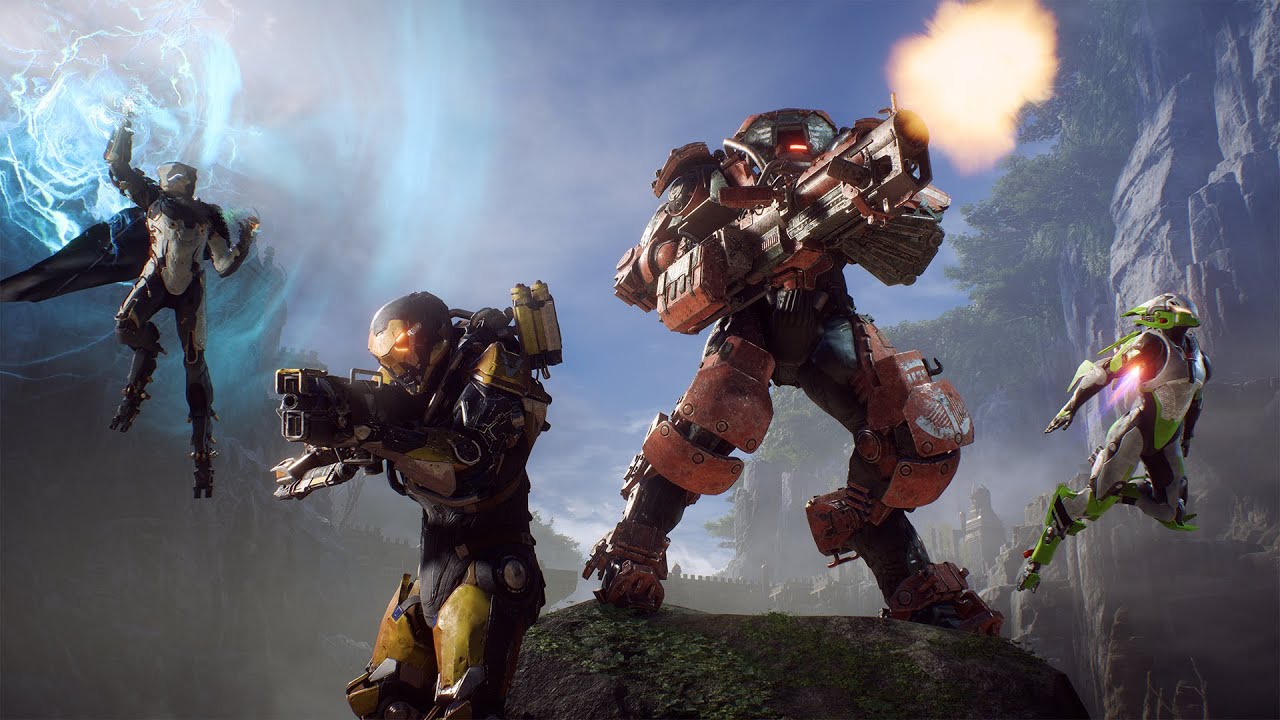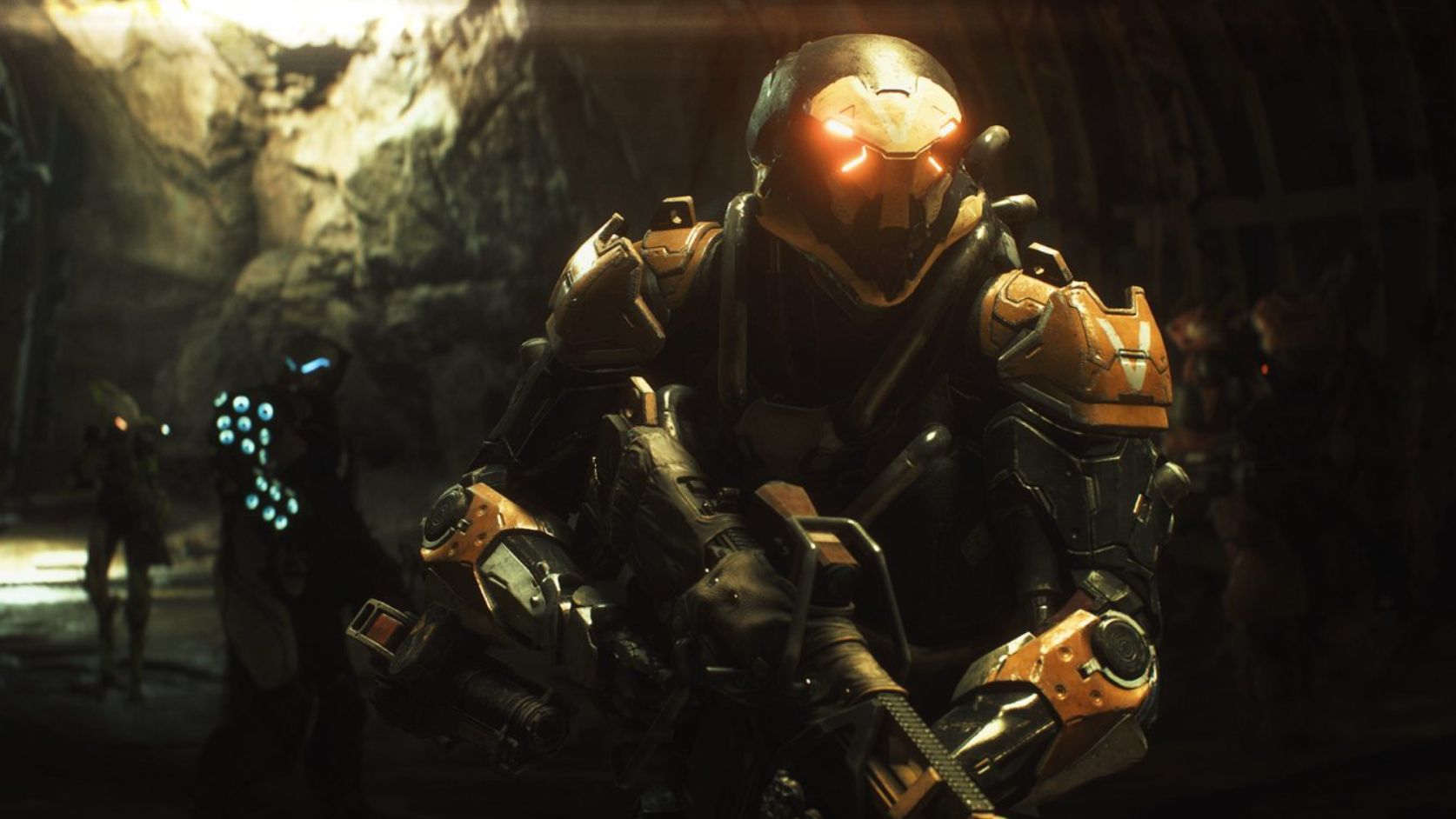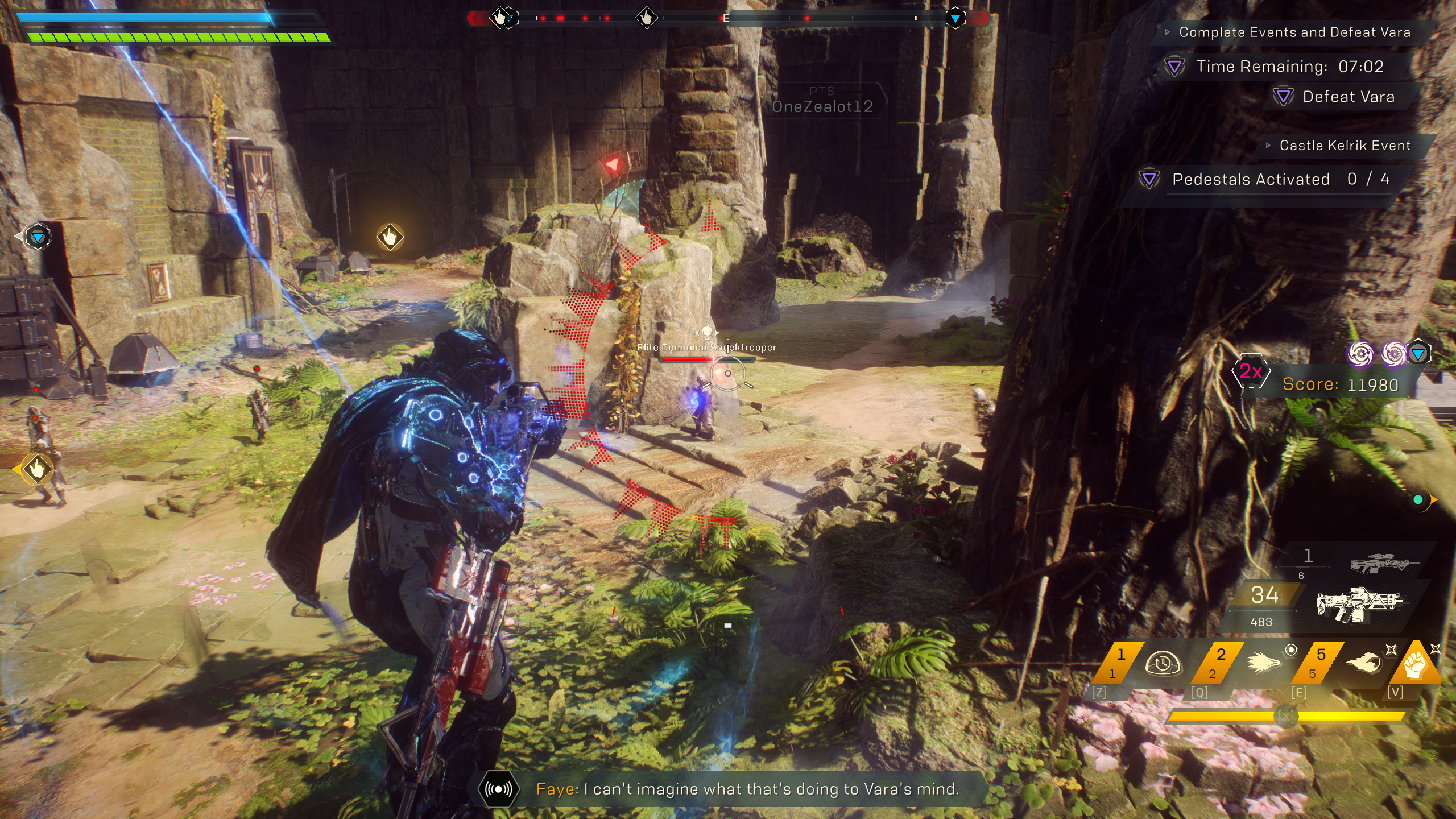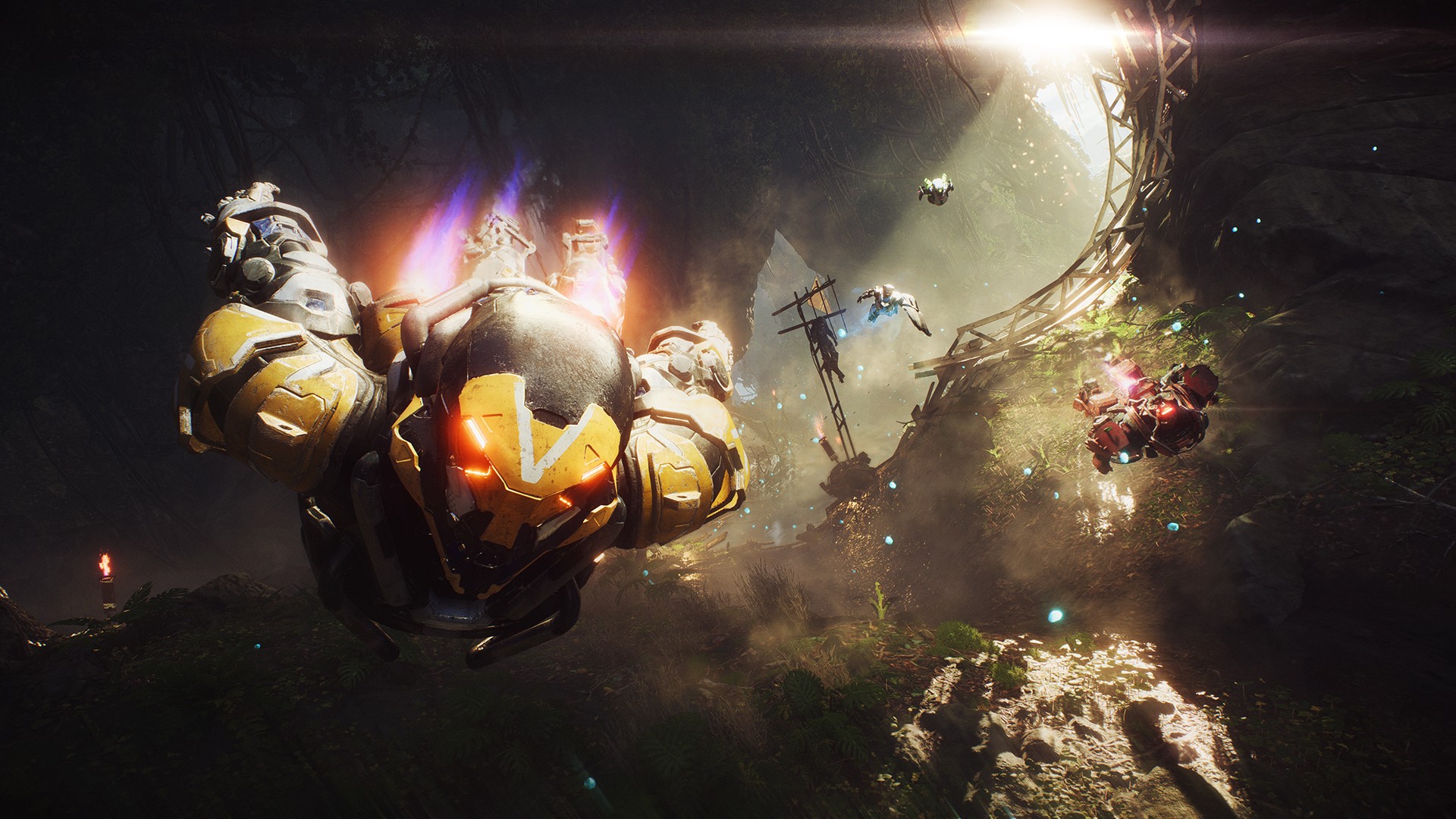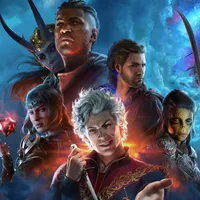Former Anthem lead producer says flying in BioWare's doomed live service shooter is proof of the dysfunction in its development: 'It's Anthem's worst feature, because the consequences of flying aren't adequately taken into account'
Flying's only so fun when it makes everything else a bit of a mess.
Former BioWare producer Mark Darrah just released the second two-hour video in his tell-all Anthem trilogy, in which he's chronicling his recollections about the production of the infamous BioWare live action shooter that's due to go offline for good when its lifetime of development turmoil ends in January.
Darrah's first video covered Anthem's earliest years and the issues with its initial conception that he said echoed through the duration of its development. This second chapter is a meaty one, because it begins in 2017: the year that Darrah took over as the project's executive producer, and a time when he said Anthem "had developed this highly dysfunctional relationship with decision-making."
In the years following Mass Effect creator and original Anthem creative director Casey Hudson's departure from BioWare, Darrah said that Anthem wallowed without a clear direction. Sustained by BioWare mythology and EA's hopes for the project's live action potential, Anthem existed in a purgatory where decisions about its production were either never made or endlessly relitigated.
"Massive numbers of decisions that affected other decisions behind them were piling up on the project and preventing the game from coalescing into something that can actually ship," Darrah said. "The thing is, games are made out of decisions. So if you aren't making decisions, or if you're constantly undoing the decisions that are made, you aren't moving towards having a game."
Even after he took over as executive producer and started making calls to drive the production forward, Darrah said that inertia persisted. As an example, he said that when he joined the project, only a single Anthem mission existed: Den of Wolves. Despite his effort to get the dev team to move on to other missions, Darrah said the studio instead "burnt that mission down and built it again." By doing so, the team hampered its ability to assess the reasons why Anthem's missions didn't give players much to do.
"The mission quality in Anthem would have become obvious earlier, perhaps early enough to have actually addressed the issue," Darrah said. "But instead, we continued to work on Den of Wolves for another several months. And by the time it was clear that the project didn't have enough activities within its missions, it was frankly too late to really do anything about it."
Darrah blames an amount of this continued dysfunction on his own failure to diagnose a breakdown in communication between BioWare's Austin and Edmonton offices. At the time when Darrah joined the project, he and the rest of Anthem's leadership were based in the BioWare Edmonton office, which had started to foster an atmosphere of skepticism about the work coming from the development staff at BioWare Austin—an atmosphere that Darrah said he was initially susceptible to.
Keep up to date with the most important stories and the best deals, as picked by the PC Gamer team.
"I was in Edmonton. I was surrounded by the leaders of the project who distrusted the effectiveness of the team in Austin. And that was the bias that I picked up," Darrah said. "I similarly didn't put in the time to completely understand what was going on on the ground in Austin, and it resulted in me making some big missteps."
Darrah said issues with communication and direction improved as senior production and technical leadership roles moved to the Austin office, but the duration of the breakdown meant BioWare wasn't fully comprehending fundamental issues with Anthem's design until late in its development.
"Because—in classic BioWare style—the game was only coming together in the last few months, [Anthem's issues] weren't obvious in the code until it was often much too late to fix it," Darrah said.
"There were people, most of whom were in Austin, who were screaming into the darkness that we needed to think about things like the economy, things like the endgame, well before it was too late. But because that leadership had become dysfunctional, because these communication channels had been damaged between Edmonton and Austin, that wasn't really being heard."
Anthem's flying, Darrah said, is a crystallization of the project's dysfunction. Flying in Anthem feels great—great enough that it's the primary thing you'll hear former Anthem players remembering fondly. But as enjoyable as soaring around in a bespoke Iron Man suit was, Darrah said it revealed how thoroughly Anthem's creative direction was ill-conceived.
Anthem's development had what Darrah called an "on-again-off-again relationship" with flying. It had been implemented for varying degrees throughout the project, but its inclusion always brought design complications: Flight changes the demands of environmental art and design. It means combat has to account for players making melee enemies and cover irrelevant at a moment's notice. It presents technical challenges for memory management and asset streaming. And it makes mission and narrative design a nightmare, because a party of four could be flying around and triggering events in different areas of the map at the same time.
For those reasons, Darrah said Anthem's creative director had made the call to remove flight, have the team focus on core game design, and revisit flight afterwards. But while flight was eventually reimplemented, it had been absent for long enough that the rest of the game barely acknowledges it's there.
"Not only is it causing consequences in the way that other things are working, other things aren't pushing back—aren't causing their own consequences, intentionally integrating and weaving it into the overall structure of the gameplay as a whole," Darrah said. "I think flying is Anthem's best feature, but I think you can argue that in a lot of ways it's Anthem's worst feature—because the consequences of flying aren't adequately taken into account."
Correction: A previous version of this article incorrectly referred to Anthem as a "live action shooter" in place of the more appropriate "live service shooter."
2025 games: This year's upcoming releases
Best PC games: Our all-time favorites
Free PC games: Freebie fest
Best FPS games: Finest gunplay
Best RPGs: Grand adventures
Best co-op games: Better together
Lincoln has been writing about games for 11 years—unless you include the essays about procedural storytelling in Dwarf Fortress he convinced his college professors to accept. Leveraging the brainworms from a youth spent in World of Warcraft to write for sites like Waypoint, Polygon, and Fanbyte, Lincoln spent three years freelancing for PC Gamer before joining on as a full-time News Writer in 2024, bringing an expertise in Caves of Qud bird diplomacy, getting sons killed in Crusader Kings, and hitting dinosaurs with hammers in Monster Hunter.
You must confirm your public display name before commenting
Please logout and then login again, you will then be prompted to enter your display name.

